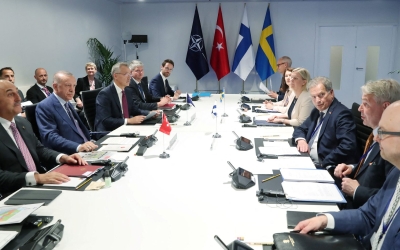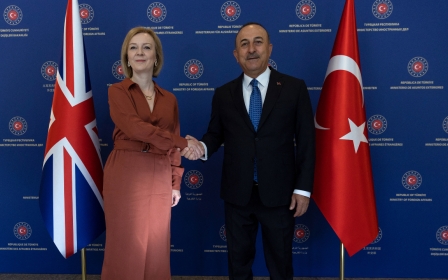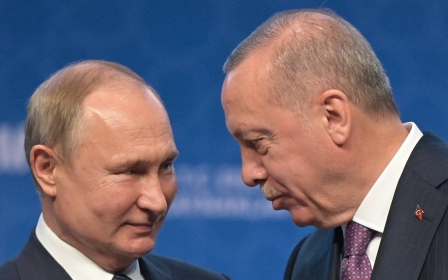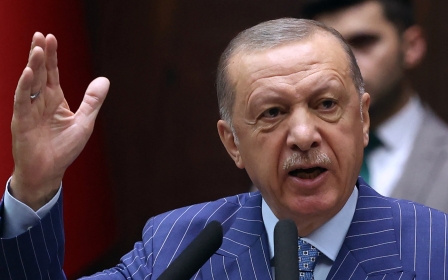Turkey to seek extraditions from Sweden and Finland after Nato memorandum
Turkey will seek the extradition of 33 "terror" suspects from Sweden and Finland after the three countries signed a memorandum enabling the two Nordic countries to join Nato, Justice Minister Bekir Bozdag said on Wednesday.
Speaking to local media, Bozdag said his country would seek the handover of the suspects "within the framework of the new agreement," signed on Tuesday after a three-hour meeting at the Nato summit in Madrid.
Finnish President Sauli Niinisto said he had met with his Turkish counterpart, Recep Tayyip Erdogan, as well as Swedish Prime Minister Magdalena Andersson and came out with a memorandum in which Ankara would support the two countries' bid to join the military alliance.
The deal ends a month-long dispute that threatened to disrupt a critical juncture in Nato history, as the Russian invasion of Ukraine had raised questions about how the alliance should respond.
Finland and Sweden formally applied to join the Nato alliance last month, following Moscow's invasion.
Turkey - which has the second-largest army in Nato - had warned that there would be no accession to membership unless the two countries agreed to extradite members of the Kurdistan Workers' Party (PKK), which has fought an armed struggle with the Turkish state since 1984.
Turkey, the US and the EU all designate the PKK as a terrorist organisation due to a history of deadly attacks on civilians. The group previously fought for an independent Kurdish state and now seeks autonomy for Kurdish areas.
Sweden and Finland had rejected Turkey's claims, affirmed their recognition of the PKK as a terrorist group and vehemently denied providing it with any support.
Finland's Niinisto reiterated on Tuesday that his country took Turkey's concerns over terrorism seriously, but added Helsinki would continue abiding by its existing policies on extraditions.
"As we enhance our cooperation on counter-terrorism, arms exports and extraditions, Finland naturally continues to operate according to its national legislation," he said in his statement.
Niinisto also told reporters that the memorandum, which will be made public at a later date, does not list individuals for extradition but rather describes principles for extraditions related to terrorism.
Middle East Eye delivers independent and unrivalled coverage and analysis of the Middle East, North Africa and beyond. To learn more about republishing this content and the associated fees, please fill out this form. More about MEE can be found here.





